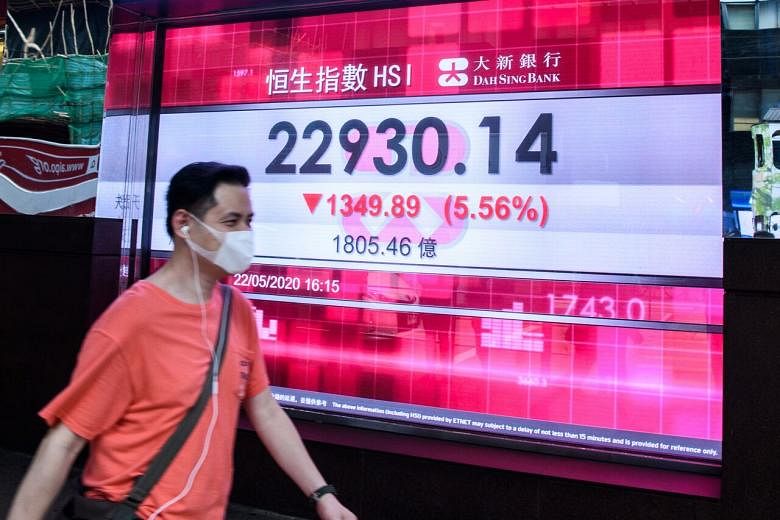HONG KONG (BLOOMBERG) - Alibaba Group Holding will be included in Hong Kong's Hang Seng in one of the biggest revamps in the benchmark index's 50-year history.
Xiaomi Corp will also be joining the index, as will Wuxi Biologics Cayman, according to Hang Seng Indexes on Friday (Aug 14) as it unveiled the first major changes since the compiler began allowing dual-class shares and secondary listings.
The move could affect tens of billions of dollars in pension fund assets and exchange-traded funds that track the index. Sino Land, Want Want China Holdings and China Shenhua Energy. were forced out of the 50-member gauge. The changes will be effective Sept 7.
The Hang Seng Index is down 11 per cent for the year, compared with the 15 per cent gain for China's CSI 300 Index and the Nasdaq Composite's 23 per cent rise.
Alibaba's inclusion builds on the trend of China's technology giants gaining more clout in Hong Kong markets - so much that the compiler recently launched a new measure focused on tech.
"The inevitable trend is for Hong Kong's equity benchmark to lose more local features and represent more of the Chinese economy," according to Mr Jackson Wong, asset management director at Amber Hill Capital, who spoke before the announcement.
"Adding these companies will help it better reflect changes in the city's equity market."
As of Friday's trading close, at least 26 firms out the 50 Hang Seng members generate the majority of their revenue from the mainland.
More listings of mainland Chinese firms are in the pipeline, such as by Alibaba founder Jack Ma's Ant Group, after debuts by NetEase and JD.com.
Listing closer to home has become more attractive as tensions between Washington and Beijing threaten to curtail China Inc's access to US capital markets.
Dual-class and secondary listings will each be subject to a 5 per cent weighting cap, compared with a maximum 10 per cent limit for others. Dual-class shares were long blocked from listing in Hong Kong due to concern over unequal voting rights until Xiaomi's debut in 2018.

